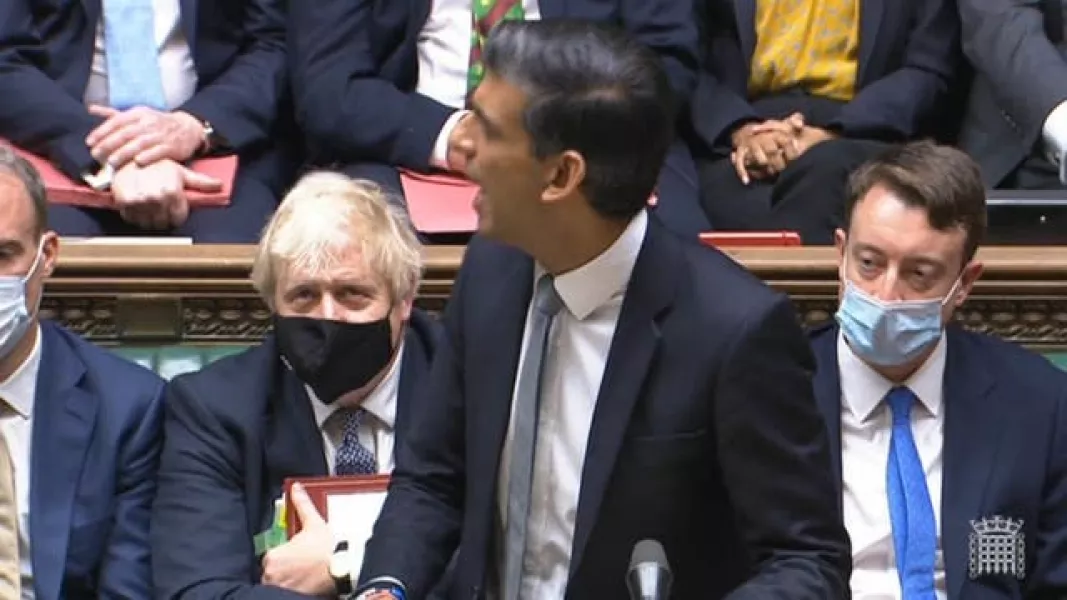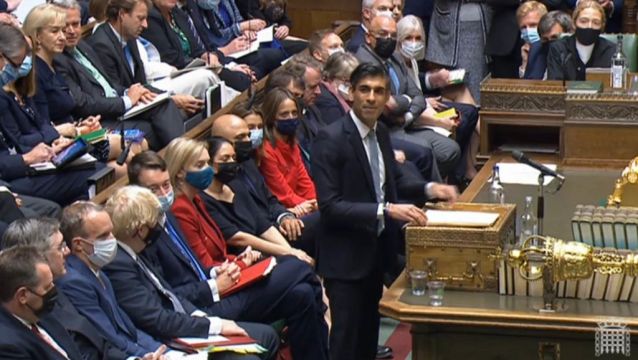Members of the British government frontbench were split over the issue of face coverings as MPs gathered in their parliament for the chancellor’s budget.
While prime minister Boris Johnson wore a mask alongside other cabinet members, notable exceptions included commons leader Jacob Rees-Mogg and foreign secretary Liz Truss.
There was also a clear difference on face coverings across the chamber, with universal mask wearing on the opposition benches.
In contrast, there were more Conservative MPs without masks in the packed chamber than those with.
Conservative former prime minister Theresa May wore a face covering, as did health secretary Sajid Javid.
On Tuesday, the UK House of Commons ordered everyone except MPs to wear face coverings while on the parliamentary estate due to rising Covid-19 cases.

The measure applies to staff, contractors and visitors but the Commons authorities said it could not compel MPs to wear masks as they are not deemed to be parliament employees.
However, officials said speaker Lindsay Hoyle would be encouraging elected representatives, despite not being obliged to wear a face covering, to put one on in the Commons chamber unless they are speaking or are exempt.
The ruling comes after MPs were urged to wear masks during the chancellor’s budget speech on Wednesday by a coronavirus expert from the World Health Organisation (WHO).
Dr David Nabarro, the WHO’s special envoy for Covid-19, said “everybody” should be wearing masks in close confinement with other people, “including our leaders”.
Mr Javid said on Monday wearing a mask in the crowded chamber is a “personal decision” for ministers and backbenchers.
Mr Rees-Mogg last week insisted Tories do not need to wear masks in parliament because with their “convivial, fraternal spirit” they know each other well.







